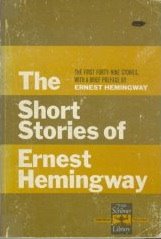 In the introduction to The Floating Opera, John Barth writes that he was influenced more by Assis than anyone else in the formation and process of writing his first two novels.
In the introduction to The Floating Opera, John Barth writes that he was influenced more by Assis than anyone else in the formation and process of writing his first two novels.By this recommendation alone, I had to pick it up. I'm glad I did.
Epitaph of a Small Winner's narrator is dead and writing, supposedly, from the grave. His method to write this novel postmortem is left out because "its relation would require an excessive amount of space and ... is unnecessary to an understanding of the work." The protagonist of the novel, Cubas, is a deceased writer writing from infinity, and although he has forever, he realizes we do not.
What results is a fantastical novel of ideas. The plot dawdles like a limp leg dragging, but since there isn't much (it's more of a commentary on life, an epitaph(!)), it's not much of a lag. Once the novel enveloped me in its twisted world, in the narrator Braz Cubas's folly-filled head, I found it hard to get out. I laughed a little, and I like books that make me laugh. Even a little.
Braz Cubas isn't quite the hero of the story, there is no real hero. He's just who the story's about. Nevertheless, he is a self-proclaimed pessimist who always gets what he wants. He's a scoundrel and a heathen, but you like him, you can't help but like him. The self-reflexive, metafictional, beyond the grave wit compliments heartily the narrator's ability to make fun of himself and the situations he's in. It's like Vonnegut in South America, only a tad less funny. There are 160 short chapters in about 220 pages, which leads to a lot of short bits of info smattered with a few devoloped instances in the life of the protagonist.
Still, the novel manages to be walloping fun. At the end of a long life he looks back at what he's accomplished, and reaches a rather deep and profound philosophical insight. Questions about the purpose of life linger after the novel's final pages, and, like the best of novels, its lingering is a good feeling, a satisfied one.
And, if for nothing else, this book is a great study of influence on John Barth. Reading Epitaph was a delight for the sheer pleasure of seeing where Barth got certain ideas, where he picked up some of his style, and how he improved upon a form he liked.
Epitaph of a Small Winner is a small winner. It's no strawberry shortcake or ice cream brownie sunday with extra fudge, but it will satisfy your sweet tooth. Barth fans especially should pick this up - it's a sure fire way to know a book is right up your alley before reading a single word.
The cover's a little dated, but the weird pictures interspersed throughout the book (although sparingly) more than make up for it.


No comments:
Post a Comment